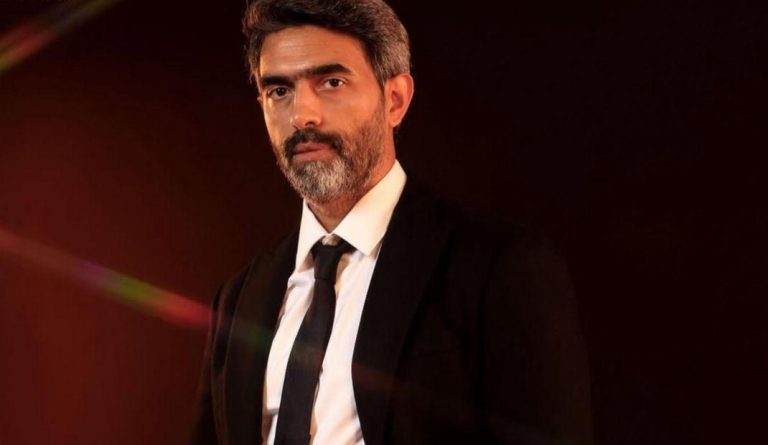Sometimes the smallest, most everyday Cairo problems spark the biggest cinematic stories — and that’s exactly what Amr Abed taps into with Saff Tany (Cairo, Stand Still). Before hearing from the cast, we sat down with director, Abed, himself to understand how this tense, intimate film came together — from the spark of the idea, to the title, to why he chose his two leads, Emad Ismael and Doaa Hamza, who are also a real-life married couple.
The Story — Through Abed’s Eyes
Abed describes the film as a “moment of pressure” between a couple in their final days before leaving Egypt. They’re trying to sell their car — only to find it trapped by another car parked right in front of it, the everyday Cairo nightmare known as “saff tany.”
As they attempt (and re-attempt) to get the car out, the physical stuckness becomes emotional stuckness. All the unspoken things between them surface: Who wants to leave? Who wants to stay? What does silence hide? What does hesitation expose?
Abed uses this simple, almost mundane setup to slowly unravel the layers of a relationship reaching its breaking point.
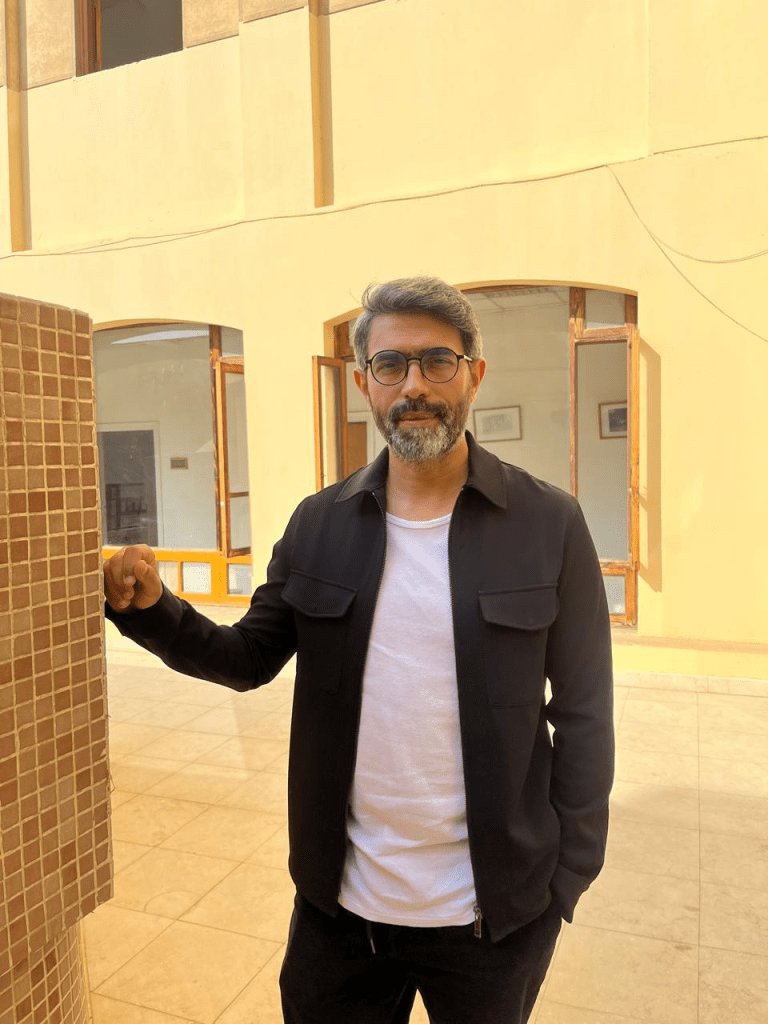
Why “Cairo, Stand Still” — Abed Explains the Title
When it came to translating Saff Tany into English, they tried multiple options — including “Double Park.” But none carried the cultural weight or emotional clarity of the Arabic phrase.
So they chose Cairo, Stand Still — a title Abed says better captures the emotional paralysis at the heart of the film. “In its own way, it expresses what the film is all about,” he tells us.
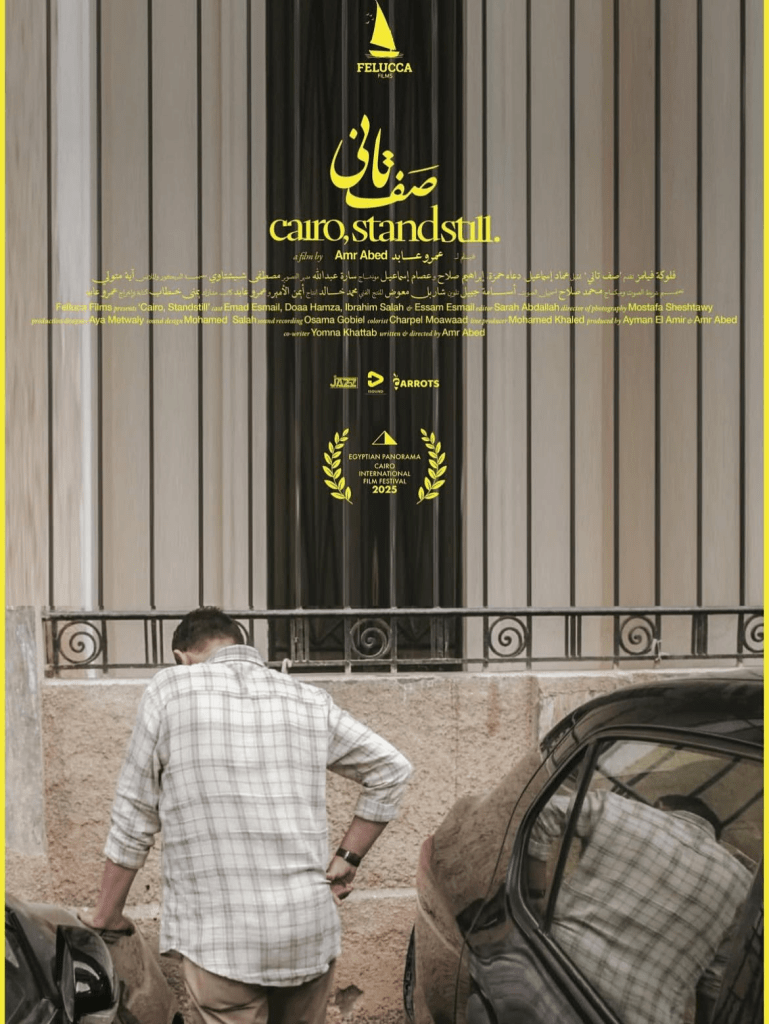
Amr Abed: Actor, Director, Storyteller — And the Vision Behind the Film
This isn’t Abed’s first time directing. He has also directed Elhofra (The Ditch) which screened at CIFF in 2021. Then, he went to Spain to pursue an MA in filmmaking. Saff Tany began as part of that program and now returns home to Cairo with a new life.
When it came to casting, Abed wasn’t thinking about stardom — he was thinking about authenticity. He chose Emad Ismael and Doaa Hamza, theater actors he’s known and respected for years. Their chemistry, honesty, and lived-in familiarity (they are married in real life) made them exactly right for Ali and Noha.
“It wasn’t about where they are in their careers,” Abed says. “It was about how deeply they fit the characters.”
And as for whether he plans to focus more on acting or directing? “It really depends on each project,” he says. “Every story tells me what it needs.”
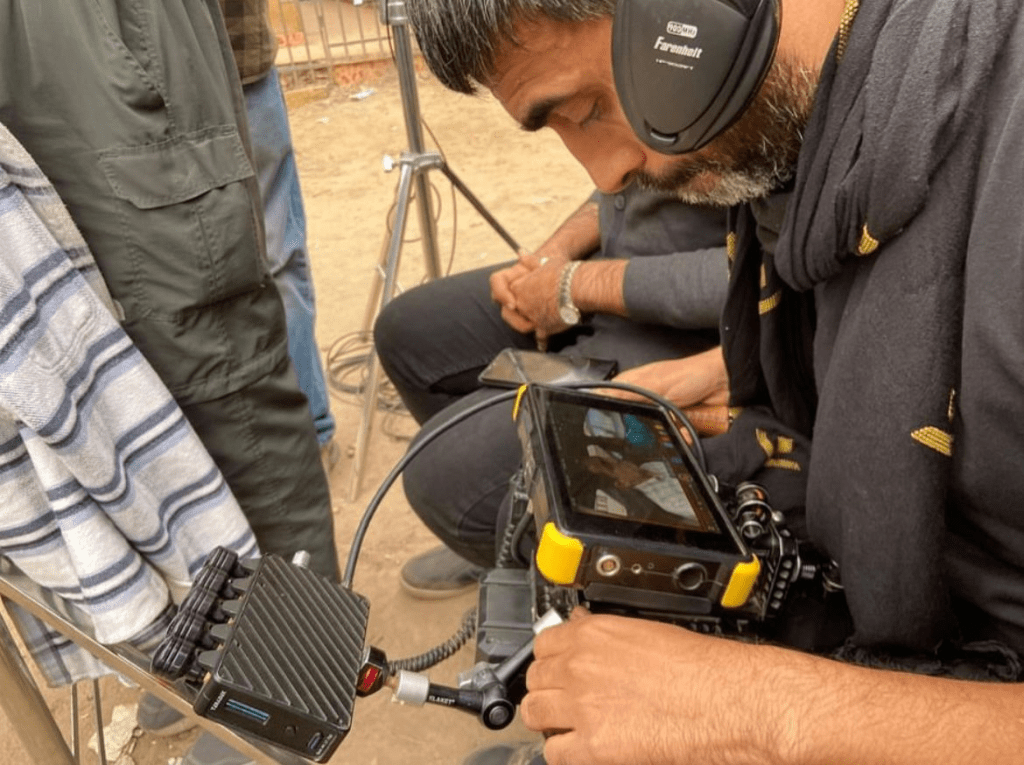
Emad Ismail: Stepping Into Ali
Emad has spent 25 years on stage, but cinema, he says, is “magic.” He plays Ali — a man locked inside his own thoughts, unable to express himself until everything finally erupts. The realism of the role drew him in: a married couple navigating a very Cairo problem under Cairo pressure.
Though he’s appeared in Kesset El Khareef and Aho Da El Sarr, this experience was different. Abed pushed him further than he expected: “He would ask me, why this word? What does he mean here? What is he feeling here?” Those questions reshaped the way Emad built Ali.
And shooting in real streets came with its own chaos — like a passerby who tried to break up a rehearsal fight, thinking it was real.
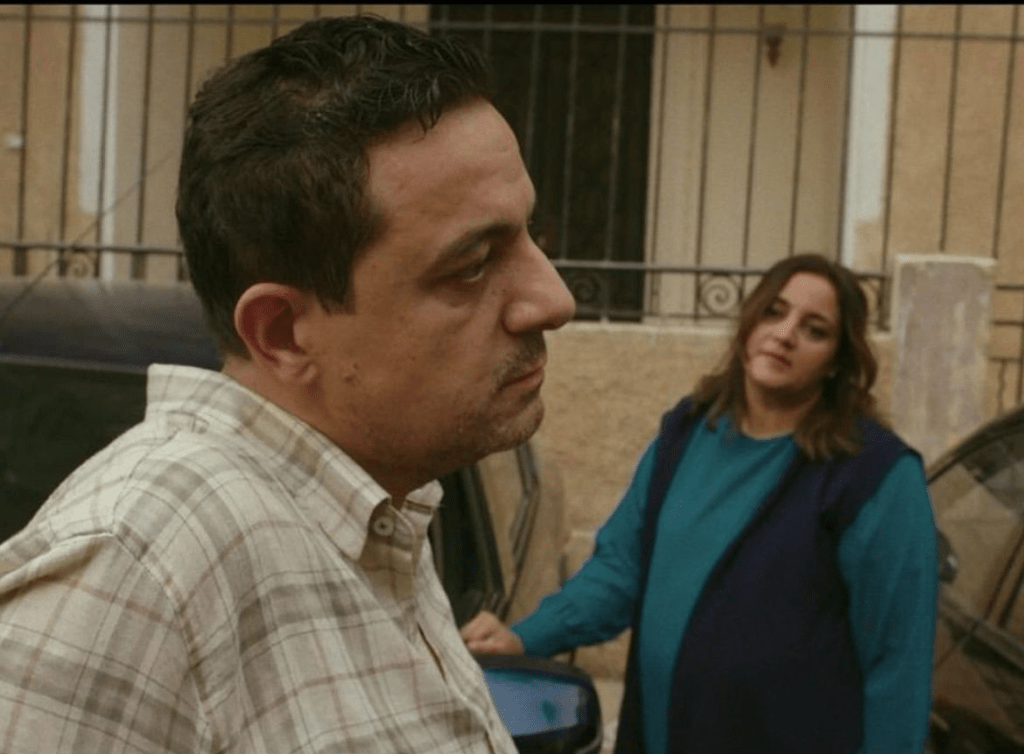
Doaa Hamza: On Playing Noha
Doaa Hamza plays Noha, a pregnant woman days away from leaving everything behind. Much of the film unfolds in one long, continuous take — adding pressure, intimacy, and a sense of reality she found electrifying.
She and Emad have shared the stage for years, but this was their first time acting together in front of the camera. “We understand each other,” she says, “but we always separate real life from the characters.”
What she loved most was the emotional whiplash built into Noha — the way stress, fear, hope, and doubt collide in seconds. “Noha has bits of me,” she admits, “and I had to move through so many feelings very fast.”
Working with Abed felt like an acting workshop: he knew when to push, when to ease back, and how to guide them into the core of their characters.
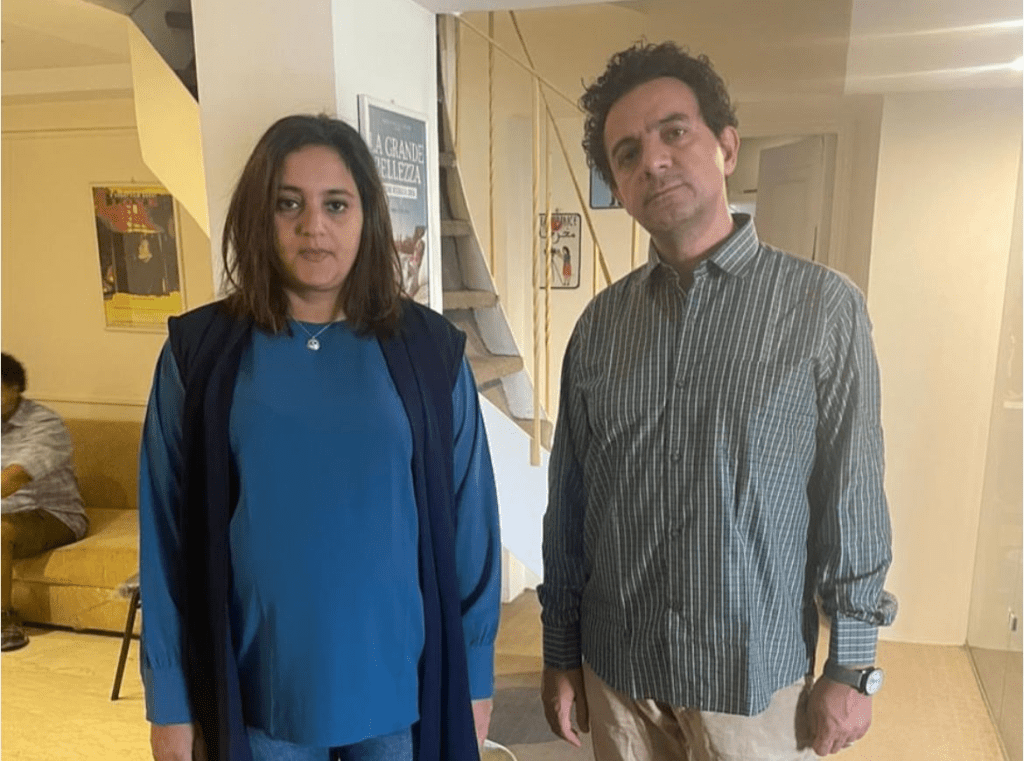
A Film That Starts With a Car and Ends Somewhere Deeper
Saff Tany / Cairo, Stand Still takes a daily Cairo inconvenience and turns it into a raw, intimate portrait of two people frozen between staying and leaving.
With Amr Abed’s steady, thoughtful direction and Emad Ismael and Doaa Hamza’s grounded, emotionally layered performances, the film becomes more than a story about a blocked car. It becomes a story about choices, fears, and the quiet moments right before life changes forever.
WE SAID THIS: Don’t Miss…Inside the Elevator With Sedky Sakhr: A Candid Interview on “Qafla” at CIFF


